186: Wine Customer Segments and How to Talk Sustainability with Them | Marketing Tip Monday
Not all wine tasters are alike - a major understatement. As traffic ebbs and flows in tasting rooms, it’s evident that interests, price points, and preferences differ.
Welcome to Marketing Tip Monday with SIP Certified. We know customers are looking for wines labeled as sustainable. While our longer-form episodes help you learn about the latest science and research for the wine industry, these twice-monthly micro podcasts will help you share your dedication to sustainable winegrowing so you can show your customers that you share their values.
In the tasting room, you get a wide variety of customers. There’s the outgoing couple that wants to know all the details of wine production. There is the lone taster on vacation with a notebook who just makes his own tasting notes. And naturally, there’s the group of friends who get a little boisterous and lose interest when the tasting room host talks about the technical attributes of the wine. Wine Intelligence recently published a study outlining six distinct consumer segments in wine. It’s important to know how to talk to each of them about sustainability.
1. Engaged Explorers:
Young, fun, ready for adventure, and super into trying new wines, regions, and producers. These are consumers who like to travel to wine regions and are likely to spend more.
SIP Talk: Talk about sustainability vs. organic and biodynamic. They’ll appreciate the knowledge!
2. Premium Brand Suburbans:
These folks skew older, know what they like and know a lot about wine. They’re usually not big spenders, but in wine country can be die-hard loyalists at any price.
SIP Talk: Get technical and talk about how fruit quality is measured- Brix, pH, and TA. They’ll dig the attention to detail!
3. Contented Treaters:
They don’t drink a ton, but when they do, they don’t care how much it costs and are looking for an engaging origin story to tell at one of their fabulous cocktail parties.
SIP Talk: Stick to casual cocktail talk and discuss fun elements of sustainable vineyards like using owls and other integrated pest management practices.
4. Social Newbies:
They’re young, new to wine and rely heavily upon recommendations and valued information.
SIP Talk: Stick to the three Ps of sustainability- People Planet, Prosperity. They’ll love this 360° approach and be able to pass it along with confidence.
5. Senior Bargain Hunters:
The largest segment of wine drinkers in the USA, they appreciate value.
SIP Talk: Value-driven sustainable initiatives like monitoring utility usage and recycling programs.
6. Kitchen Casuals:
Very infrequent wine drinkers who rarely stray from what they know and are not as interested in wine as they are in other beers and spirits.
SIP Talk: Stick to the basics of what sustainability is and how drinking SIP Certified wine is a win for the people and environment.
Does Your Team Know Your Sustainable Story?
Need an easy way to help your team talk about your sustainable practices?
Download the brand-new Sustainable Story worksheet. This simple yet powerful free tool that helps you tell your own personal sustainable message. Simply download the worksheet linked in the show notes, complete it with your whole team, and keep following along with this podcast series to learn how to incorporate your story into every aspect of your marketing and sales.
Plus, we are inspiring you by sharing what like-minded brands are doing to care for the people and the planet.
Worksheet for Print | Worksheet for Electronic
For those of you who are SIP Certified, check your mailbox. Just in time for the summer wine-tasting season, we have mailed you table signs featuring a graphic of the 7 Values of SIP Certified plus a QR code to “read this month’s, Sustainable Story”.
Check out the show notes to download and complete your own Sustainable Story worksheet, read an example from Niner Wine Estates, to see the consumer segment infographic, and to sign up for our biweekly Marketing Tips newsletter.
Until next time, this is Sustainable Winegrowing with the Vineyard Team.
References:
- **SIP Smart Training online course
- Marketing Tips eNewsletter
- Niner Wines Estates protects the people and the planet
- Sustainable Story Worksheet | Print
- Sustainable Story Worksheet | Electronic
- What's your Sustainable Story?
- SIP Certified
- Vineyard Team
- Wine Customer Segments and How to Talk SIP With Them

